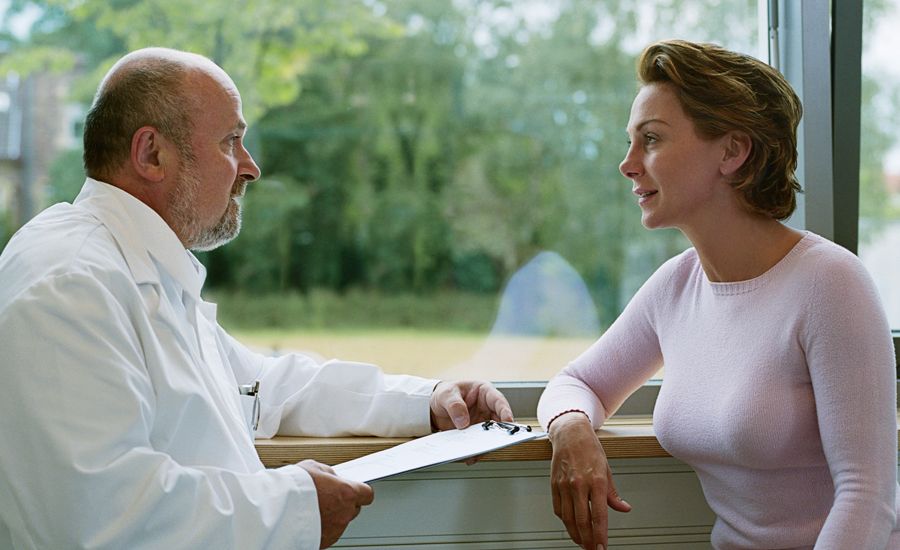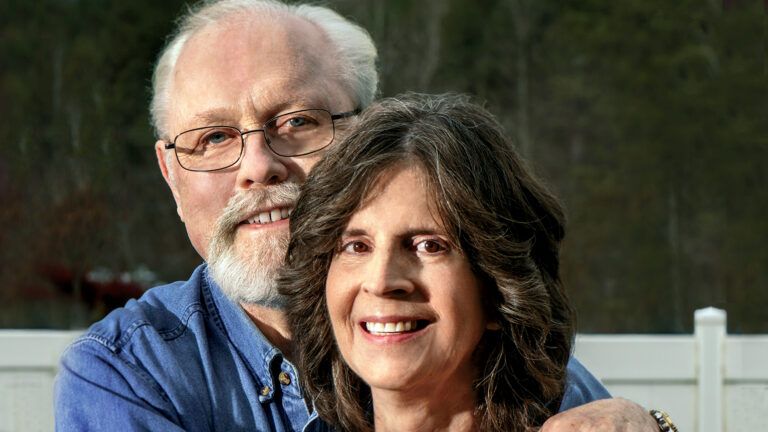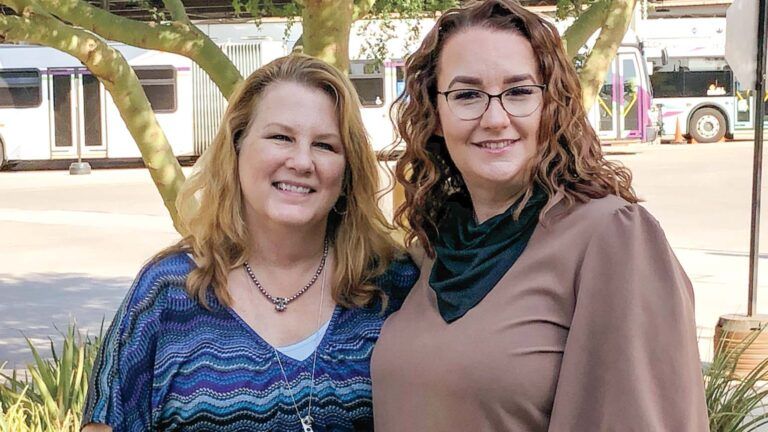When I was diagnosed with lymphoma 11 years ago, at the age of 31, hope was not on my radar right away. I was aware of new, copious, frightening information coming at me more quickly than I could process it. I was aware of doctors and their foreign language—things like cocktails, treatment, and courses were no longer fun or innocuous. I was aware of hard, fast choices—Get a second opinion? Freeze my eggs? Quit my job?
It wasn’t until I started chemo that I truly dug into the question behind everything: Will I survive? And if so, for how long? These are questions doubt asks of hope. We want hope’s answers to feel light, mighty, and sure. We want her to yell back: “Yes.” And: “You’ll be OK.” Or: “We’ve got this.”
Learn More: Visit Our Trusted Partner, Cancer Treatment Centers of America
But it’s often hard to hear hope’s voice in the midst of mortal terror; an afraid brain is not a hopeful brain. Afraid brains talk in harrowing anecdotes and bad statistics. You can practically tell by touching your skin which one is winning at the moment—fear runs fast and cold, while hope runs smooth and warm. We all need hope though, scary diagnosis or no, any way we can get it. Here are 5 ways to stay hopeful after a cancer diagnosis.
1) Kick Out Stats.
One of the best things my oncologist said to me was, “You are not a statistic.” It was hugely helpful, as I’d been scaring myself on Google. And it’s true. Other people have had the same diagnosis and someone has studied what happened to them afterward. But it’s really none of your business what they’ve found. Because you have not had this diagnosis. You are a person with a disease passing through you. You are not a chart. And neither are any of those people they studied.
If you find deep comfort in good statistics, focus on the percentage who got and stayed well. Or assign a reliable person to do the research and cherry-pick the good news for you. But mostly, just let this one go—and hold your hand up to anyone who wants to deliver their negative internet search findings. As in, “Thank you, but part of my treatment plan is not getting mired in statistics because I am a person, not an Excel sheet.” (Or something like that.)
2) Meditate.
So many studies are showing how useful meditation is for lowering stress. That’s one reason to do it right now—a big one. But meditation also gives you a much-needed buffer zone between you and your thoughts. Chances are many of your thoughts are coming from that afraid brain right now and those are not your friends.
Find a teacher near you, download a well-reviewed meditation app or album, or just sit comfortably, set a timer, close your eyes, and pay attention to your breath for a while. Every time you find your mind wandering, gently bring your attention back to the air going in and out of your body. Try it for 10 minutes a day. It gives hope a much better chance of getting through to you.
3) Believe.
If you have any relationship with a higher power, now is the time to turn it up. Pray, sure. But also, see if there’s a way to hand over the reins. Once you’ve found a doc you like and begun a course of treatment, do your best to anchor yourself in the light and the belief that everything will be OK—somehow, some way. So much easier said than done, yet when I found a way to set my inner cruise control to “trust,” everything just felt so much better. Of course it wasn’t perfect—but having faith that I would heal gave my control-freaky tendencies a little less grip.
4) Screen Out the Negative.
Let’s be straight: Cancer is awful. People sometimes call it a “gift” with “silver linings,” but really, it’s a bomb that blasts holes. That said, to heal from it with a sense of grace intact, you must mend those holes and keep out any extra grenade throwers. Oddly, many people hear about a cancer diagnosis and want to tell you the terrible story of Uncle Al who had exactly what you had and died.
My friend who survived breast cancer learned to cut off any and all anecdotes with a polite but firm, “If this story ends with someone dying, I don’t want to hear it.” As noted above, avoid the internet on the grit of your diagnosis. There are message boards full of angry, sick people with awful stories. Don’t go there—unless you find it hopeful.
Distance yourself from the negative Neds and Nellies; they are the slayers of the hope you are working to sustain. If we’re looking for a silver lining, the cancer card is the best way out of any unsavory social engagements: “Sorry, I’m not feeling well” has never been more true or believed.
5) Invite the Positive.
That whole thing about laughter being the best medicine? There may be stronger pharmaceuticals, but nothing beats joy for sheer healing pleasure. Woo it. Ask for lists of funny, uplifting movies and TV shows. Read inspiring or humorous books. Those friends who offer to help? Tell them: “Find me funny and/or inspiring media you think I would like.”
Ever been inclined to write affirmations on sticky notes? Now is the time. Looking for a mantra? Try: “I am well, healed, and whole.” Have tea with people who make you feel warm inside, who make you laugh, who make you feel more like you. Turn on your favorite music. Dance if you can. Make gratitude lists every day. Whatever you can do to drum up the vibration of joy—do. When joy is present we are warm and open; hope can slip right in to stay.





